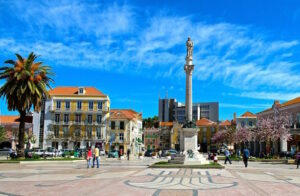Last Updated on November 26, 2025 by Emma Fajcz | Published: August 30, 2019
Once you know how to use public transportation in Lisbon, you can really make the most of your time in this incredible city.
Lisbon is a city of steep hills, winding alleyways, beautiful architecture and so much more. Sometimes it’s best to explore its streets on foot—but if you want to see everything it has to offer, you might need some extra help. Luckily, public transportation in Lisbon provides plenty of alternatives!
There are several ways to get from point A to point B; the best choice depends on where you want to go and how you prefer to travel. Here we’ll give you an overview of the main options, and the basics of how to navigate them.
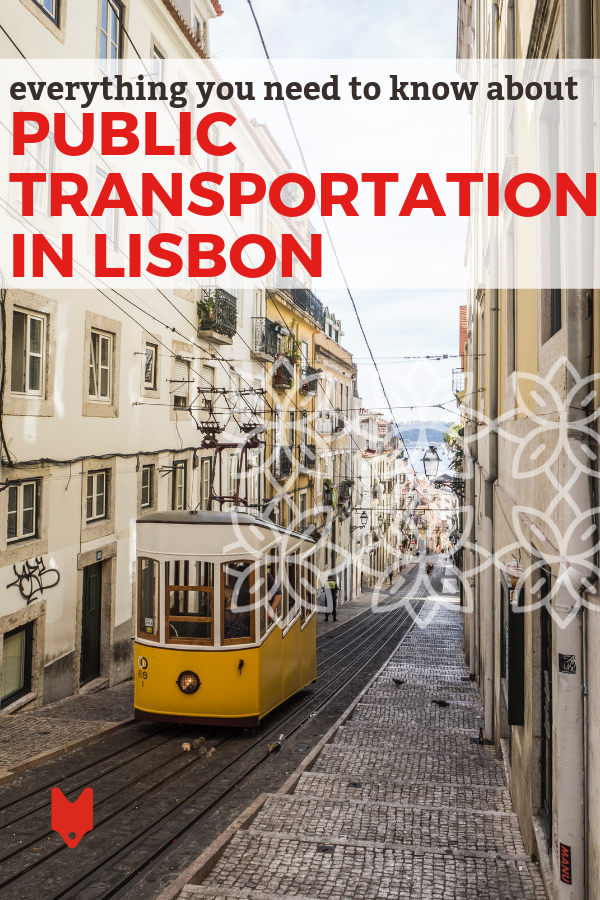
The Viva Viagem Card
First of all, to use any means of public transportation, you’ll need to buy a Viva Viagem card. It costs just €0.50 and can be reloaded with credit for the metro, buses, trams and trains. You can buy a single ticket at a time, or opt for a 24-hour unlimited pass for just €6.40.
There’s also the “zapping” option, which lets you pre-load credit onto your card in advance. All you have to do is swipe it, and the correct amount will be deducted. Tickets are also slightly cheaper if you choose to use this feature!
Options for Public Transportation in Lisbon
The Lisbon Metro – A Quick and Easy Choice
The Metropolitano de Lisboa, or metro for short, is one of the fastest and cheapest forms of public transportation in Lisbon. It consists of four subway lines: blue, yellow, green and red. The metro is a consistent and reliable way to get around the city, and is very clean and well maintained.
That said, the metro isn’t quite as extensive as it could be, with relatively few intersections between lines. It’s best for longer journeys, or to move between the airport, bus or train stations and city center. A single ticket is €1.50, and it’s open from 6:30 a.m. to 1 a.m.
Local’s Tip: You’ll need to swipe your Viva Viagem card both when you enter and exit the metro, so keep it handy!
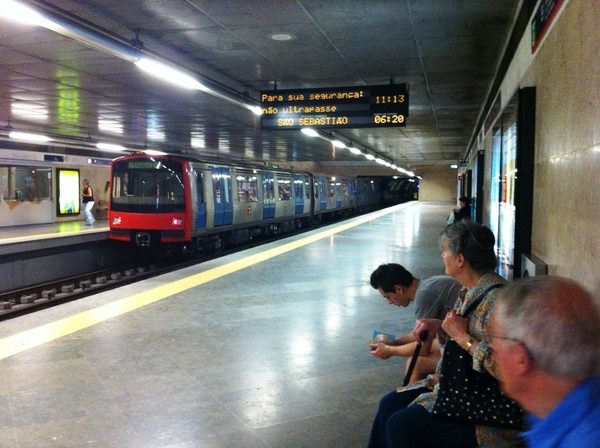
Buses in Lisbon – More Routes & Longer Hours
Lisbon’s city buses are recognizable for their bright yellow color, and are operated by the company Carris.
There are nearly 150 different bus routes that traverse the center and connect it to nearby attractions like Belém and LX Factory. A single ticket is €2 if you buy it on board, or slightly cheaper if you use your Viva Viagem card.
While most buses run from early morning to late evening, the Rede da Madrugada (night bus network) provides service throughout the night. If you stay out late enjoying Lisbon’s nighttime activities, you can forego an expensive taxi trip home by hopping on line 201, 202, 206, 207, 208 or 210.
Trams – For Iconic Photo Ops
Lisbon’s bright yellow trams are certainly one of the most picturesque ways to get around the city.
The most famous is Lisbon tram 28, which runs from Martim Moniz to Campo Ourique. It’s a great way to see the iconic neighborhoods of Graça, Alfama, Baixa and Estrela, not to mention a practical means of public transportation in Lisbon. However, keep in mind that this isn’t a touristic line—many passengers are locals going about their day-to-day lives. Travel responsibly and try to only take tram 28 if you really need it to get to where you want to go—not as a photo op.
In addition to the 28 tram, there are a few other lines—both historic and modern—that you can use; try the 12E or 18E, or the recently restored 24E. A single ticket is €3 on board, but we suggest that you buy in advance instead of trying to pay on a crowded tram. Keep in mind that certain lines only run until the early evening, and some are closed on Sundays.
Local’s Tip: Keep a close eye on your belongings! Pickpocketing is always a risk on public transportation in Lisbon, but on the more popular tram lines it’s especially prevalent.
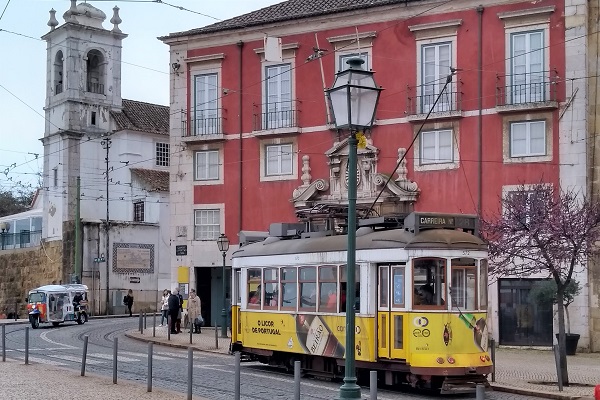
Funiculars and Lifts – Steep Streets & Stunning Views
If your legs are tired from climbing Lisbon’s endless hills, hop on one of its three funiculars: Elevador do Lavra, Elevador da Glória and Elevador da Bica. These cable cars can be found on some of the city’s steepest streets, leading to gorgeous panoramic views. A single ticket costs €3.80 when bought on board.
In addition to the three funiculars, there’s the Santa Justa Lift. It’s a vertical elevator that takes you from Baixa to Bairro Alto (or vice versa), offering an incredible view from the top. Unlike other forms of public transportation in Lisbon, this is primarily a tourist attraction, and a single ticket costs €5.30. The lift was designed by Raoul Mesnier du Ponsard, and its intricate architecture is a sight worth seeing in and of itself.
Trains – Ideal for Day Trips
If you want to take a longer trip to the areas surrounding Lisbon, the comboios (trains) are your best bet.
There are 67 stations on four lines: Sintra, Cascais, Azambuja and Sado.
In the city center, the main train stations are Gare do Oriente, Cais do Sodré, Santa Apolónia, Rossio and Campolide.
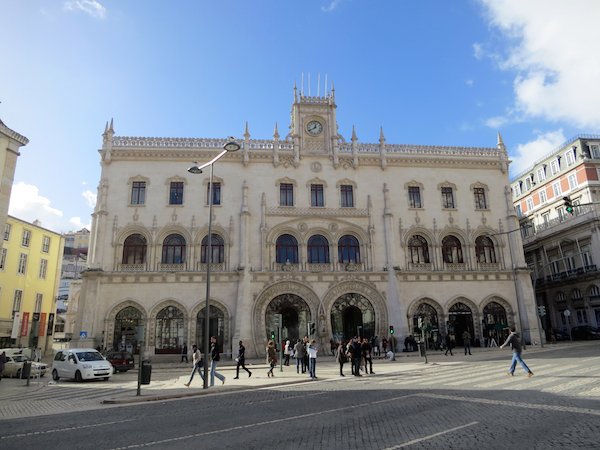
One of the most popular routes among tourists is the Cascais line, which starts at Cais do Sodré and runs along the coast to Carcavelos beach, Estoril and the resort town of Cascais. This is one of the best day trips from Lisbon, and the perfect way to escape the chaos of the big city. Ticket prices vary depending on the distance, ranging from €1.35 to €3.45 for a single journey.
Local’s Tip: Remember to validate your ticket at the station before boarding the train. Your ticket will most likely be inspected once on board, so don’t forget!


